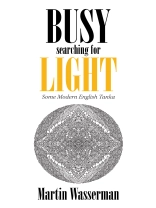In this work, the author shows that composing modern English tanka is almost like writing the material that one would find in a diary, for not only do the authors tanka poems focus on love and nature but they also concentrate on philosophical speculations, as well as the expression of intense emotional states like anger, sadness, and joy. Additionally, the authors writings demonstrate that in an English-language tanka, as compared to an English haiku, there is a greater use of both a strongly symbolic language and the cleverly placed metaphoric phrase. Finally, this work shows that the composing of English tanka can very much appeal to an attentive readers inherent sense of humor.
Sobre o autor
Martin Wasserman, the author of this work, is a Professor Emeritus at SUNY Adirondack, a college in the State University of New York system, where he taught for thirty-six years. During his career he published over thirty journal articles and three books. One of those works, Kafka Kaleidoscope, was chosen as a Best Book by the Small Press Review in 1999. Professor Wassermans two most recent works are a poetry adaptation entitled Ho Chi Minh in Prison: A Prose Poem and a poetry translation called The Peace Egg: Some Epigrammatic Poems After Reading Rilke.












